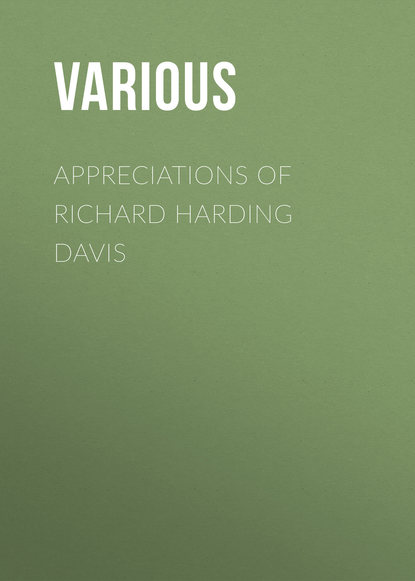 Полная версия
Полная версияПолная версия:
Appreciations of Richard Harding Davis
He brought his own bread—a coarse, brown sort, which he preferred to the better white bread—and with it he ate great quantities of butter. As we sat down at the table his first demand was for "Mastika," a peculiar Greek drink distilled from mastic gum, and his second demand invariably was "Du beurre!" with the "r's" as silent as the stars; and if it failed to come at once the waiter was made to feel the enormity of his tardiness.
The reminiscences ranged from his early newspaper days in Philadelphia, and skipping from Manchuria to Cuba and Central America, to his early Sun days under Arthur Brisbane; they ranged through an endless variety of personal experiences which very nearly covered the whole course of American history in the past twenty years.
Perhaps to him it was pleasant to go over his remarkable adventures, but it could not have been half as pleasant as it was to hear them, told as they were with a keenness of description and brilliancy of humorous comment that made them gems of narrative.
At times, in our work, we all tried our hands at describing the Salonika of those early days of the Allied occupation, for it was really what one widely travelled British officer called it—"the most amazingly interesting situation I've ever seen"—but Davis's description was far and away the best, just as his description of Vera Cruz was the best, and his wonderful story of the entry of the German army into Brussels was matchless as one of the great pieces of reporting in the present war.
In thinking of Davis, I shall always remember him for the delightful qualities which he showed in Salonika. He was unfailingly considerate and thoughtful. Through his narratives one could see the pride which he took in the width and breadth of his personal relation to the great events of the past twenty years. His vast scope of experiences and equally wide acquaintanceship with the big figures of our time, were amazing, and it was equally amazing that one of such a rich and interesting history could tell his stories in such a simple way that the personal element was never obtrusive.
When he left Salonika he endeavored to obtain permission from the British staff to visit Moudros, but, failing in this, he booked his passage on a crowded little Greek steamer, where the only obtainable accommodation was a lounge in the dining-saloon. We gave him a farewell dinner, at which the American consul and his family, with all the other Americans then in Salonika, were present, and after the dinner we rowed out to his ship and saw him very uncomfortably installed for his voyage.
He came down the sea ladder and waved his hand as we rowed away. That was the last I saw of Richard Harding Davis.



